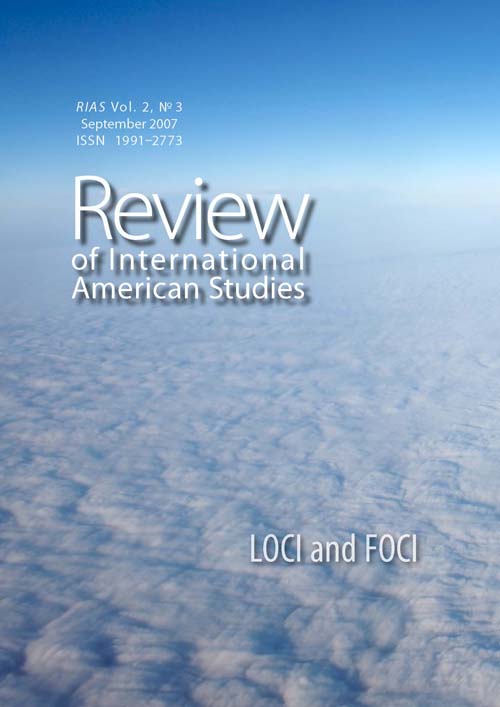Transnationalism: The American Challenge
Transnationalism: The American Challenge
Author(s): Frank KelleterSubject(s): Language and Literature Studies, Studies of Literature, Other Language Literature, Cultural Anthropology / Ethnology
Published by: Wydawnictwo Uniwersytetu Śląskiego
Summary/Abstract: Much of what distinguishes the so-called ‘transnational turn’ in American Studies is encapsulated in Janice Radway’s influential suggestion to re-think and maybe even abandon the name of our discipline so as to make it less dependent on nation-centered perspectives. To the extent that the label American Studies continues to identify the word America exclusively with the United States at the expense of all other Americas north and south of that country, this is a legitimate proposal. One would think, therefore, that greater accuracy could do the trick, such as changing the name of the discipline to US Studies. But chances are that Latin Americanists will not be satisfied with this far too simple solution. Neither is Radway. Correctly she notes ‘the apparent lack of self-consciousness’ with which we use the term America to denote the United States (Radway, 1998: 7). My claim in this paper is that transnationalizing American Studies in the sense proposed by Radway and others will not necessarily advance our understanding of this ‘lack of self-consciousness’. I sympathize with Radway’s uneasiness about the imperialist implications of this unthinking semantic habit. I sympathize, too, with her political project of turning parochialism into self-awareness. But I believe that if we want to understand the peculiar, indeed unique, status of the word America among national names in the world today, we need more than merely a desire to overcome national perspectives or to supplant them with supposedly more advanced models of trans– or even post-national hybridity. This is not because transnational approaches are somehow ‘wrong’, but, as I will argue, because in their current form and institutionalization they trigger critical practices unable to answer—and sometimes even to ask—the relevant questions. In other words: While there may be little wrong with what transnational approaches are saying, a lot may be wrong—or at least questionable—with what they are doing.Radway, for instance, writes that to transnationalize American Studies means ‘to show that American nationalism is neither autonomously defined […] nor […] internally homogeneous. Rather, it is relationally defined and historically and situationally variable’ (Radway, 1998: 18). There is little that can be said against this statement. In fact, this is a supremely unproblematic statement in the sense that hardly anyone currently working in the field will disagree with it. In other words, this statement provides no problem: it contains no program of research, no question that points beyond its own self-verification. Radway’s statement provides no question, I say, because it presents itself as an answer already—and, what is more, as an answer that claims to supply radical and dangerous knowledge. This easy iconoclasm leads to academic practices that frequently belie their own best intentions of critical understanding.
Journal: Review of International American Studies
- Issue Year: 2/2007
- Issue No: 3
- Page Range: 29-33
- Page Count: 5
- Language: English

